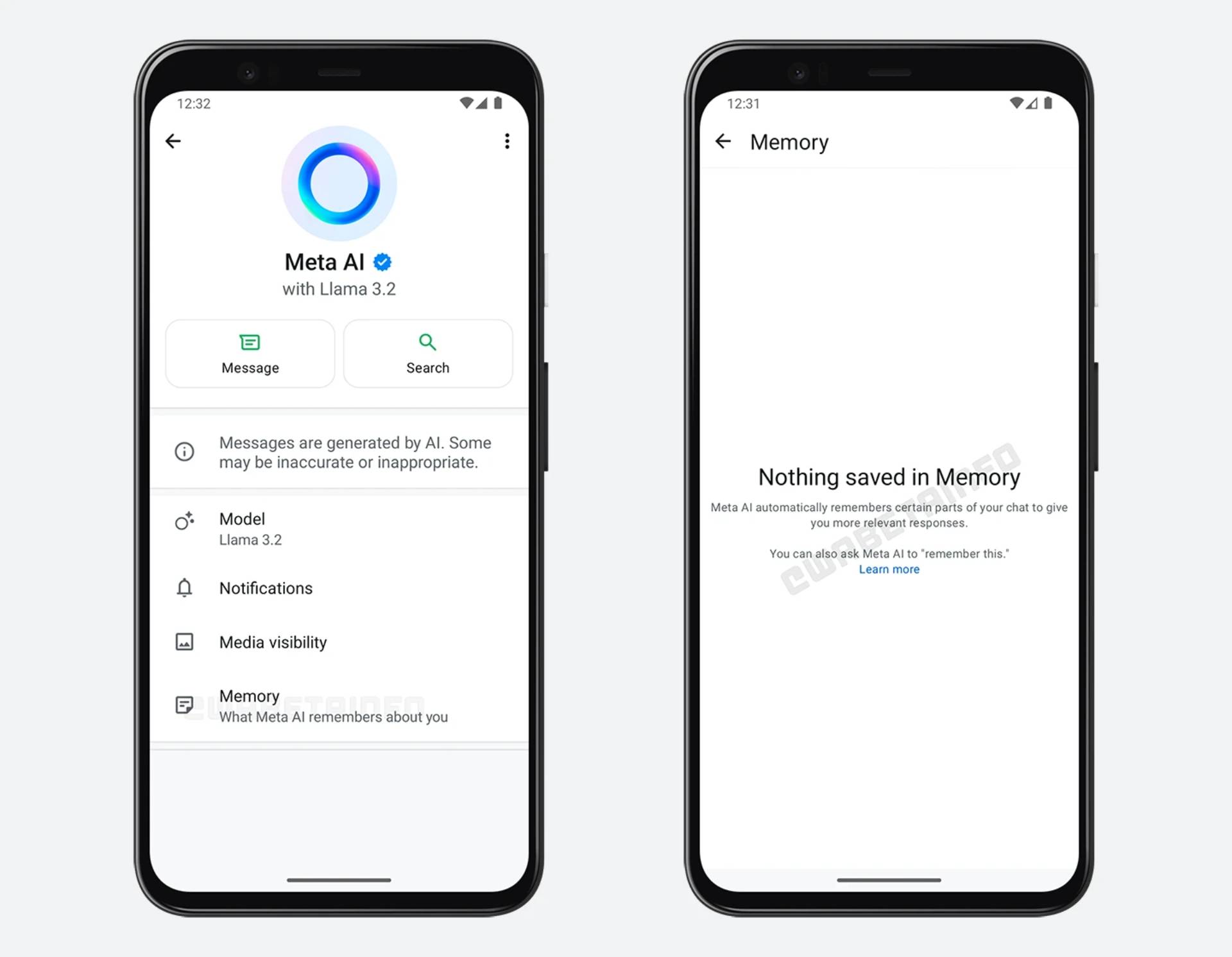Damien Wilde / Android Authority
TL;DR
- Meta AI in WhatsApp could soon offer personalized responses.
- An in-development Memory feature will allow the chatbot to remember parts of your conversation and tailor responses based on shared details.
- The feature will display everything Meta AI remembers about you in a new section and let you update or remove details.
After adding voice message support for Meta AI chats on WhatsApp earlier this year, Meta appears to be developing a new feature to give its chatbot a more personal touch.
WABetaInfo reports that an upcoming Memory feature will allow Meta AI to remember information users share and offer relevant responses in future conversations. The chatbot will reportedly be able to record various details, like food preferences, birthdays, and personal interests, and tailor future responses based on the provided information.
The Memory feature was spotted in the latest WhatsApp beta for Android, but it’s not available to users. However, WABetaInfo has shared screenshots revealing that it will add a new Memory section to the Meta AI contact card in WhatsApp.

This section will list all the things Meta AI remembers about you. Its description states: “Meta AI automatically remembers certain parts of your chat to give you more relevant responses.” It also mentions that the feature will let users manually commit information to Meta AI’s memory with a “remember this” command. The report adds that you will have complete control over the information Meta AI saves, with options to update or remove details at any time.
Meta has not officially confirmed any details about this feature, and we don’t have a tentative release timeline at the moment. We’ll update this post as soon as we have more information.
Got a tip? Talk to us! Email our staff at [email protected]. You can stay anonymous or get credit for the info, it's your choice.








 English (US) ·
English (US) ·